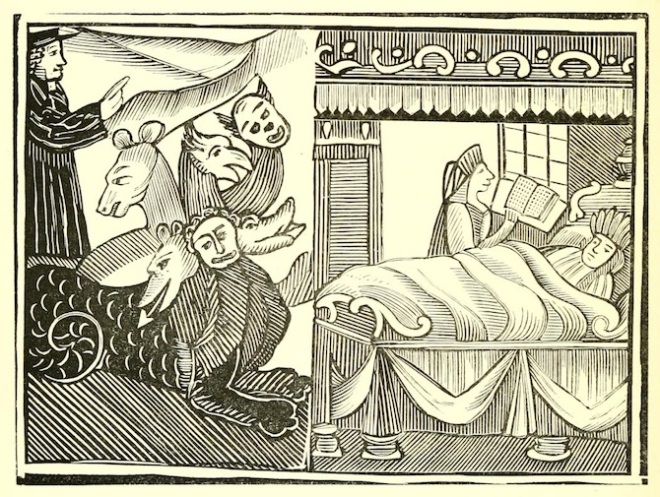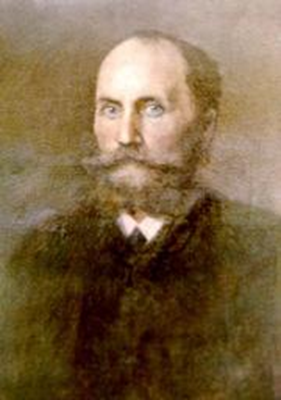Dreaming, recollection and recognition
The recollection-provoking assets of dreaming are salient: will, and the
concomitant control and filter function of the mind, become gradually
extinguished. As a result, the recollective function is strengthened: “der Schlaf [macht] häufig den im Wachen vorangegangen
Prozess des Vergessens rückgängig”. (Carl du Prel, Philosophie der Mystik, p. 289) As a rule, dream content is drawn from memory
even though it can only be recognised
as such, if at all, upon awakening. As a matter of fact, dreaming can activate
recollection without corresponding
recognition: “es findet
Reproduktion ohne Erinnerung statt”. (ib., p. 290)
 If we take as an example Freud’s famous
dream about Irma’s injection (quoted in his Traumdeutung),
Freud can only recognise (that is, consciously re-mind, re-member) the
dream events after awakening and upon subsequently reflecting on his dream
(even more so upon a deliberate analysis of the dream). Awakening can make us
‘recollective’, that is, it may add recognition (if at all) to ‘mere’
remembering.
If we take as an example Freud’s famous
dream about Irma’s injection (quoted in his Traumdeutung),
Freud can only recognise (that is, consciously re-mind, re-member) the
dream events after awakening and upon subsequently reflecting on his dream
(even more so upon a deliberate analysis of the dream). Awakening can make us
‘recollective’, that is, it may add recognition (if at all) to ‘mere’
remembering.
However, recognition, Du Prel notes,
ultimately originates in the very memory (Gedächtnis) which also allows
for the eliciting of memorie-s. Memory is the common yet enigmatic
source of reproduction, recollection and recognition. Without the latter, our
experience is drifting on a sea of unrecognised memories which it will be
unable to re-collect. Conscious recognition deepens recollection. It does so
even if – or must we say, because – recollection is ultimately
unfathomable. For we should not discard the possibility that recollection is an
infinite job, even less so in light of the layered structure of consciousness
discussed in the previous chapters. Just as ‘pure’ actual perception may be
illusory (due to its pervasion by past memories or present fantasies), it may
be equally misleading to pursue a ‘pure’ memory exhausted by a purportedly ‘adequate’
recognition.
Not only may the original event subsequently ‘stored’ in memory
have been inadequately processed, so that what had been stored was actually
an ‘original distortion’. It could also be – and this is a far more promising
possibility – that what is called ‘recognition’ will discover hitherto
neglected dimensions of the stored memories. Perhaps the alleged ‘original’
memorised content (‘memory’) is susceptible to being re-engaged by ‘recognition’
in such a way that it appears in an altogether new fashion – just as, for
example, when someone’s youngest son shows up at a family meeting wearing a decent
dinner suit with a corresponding tie for the first time in his life.
‘Recognition’, then, might be more than just
a re-appropriation of an alleged ‘pure’ past; it might amount to a rediscovery
or even re-creation of this past. This virtual possibility, I think, is facilitated
by dreaming. In dreams, we experience the fluctuation of a threshold whose
essence is not only to protect us (from mental overload) but also to fixate
past and present. Attributing primacy to waking or supraliminal consciousness,
far from serving scientific truth-finding, rather contributes to paralysis, if
not to ontological despair. Descartes’ dream doubtlessly saved him from falling prey to the ‘cartesian’ mechanism
and materialism of his disciples.




Reacties
Een reactie posten